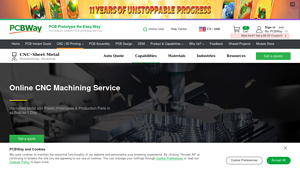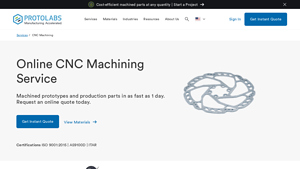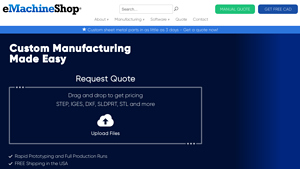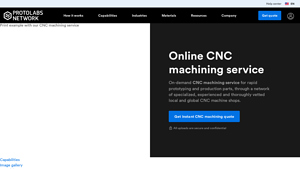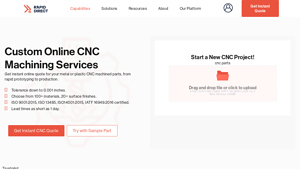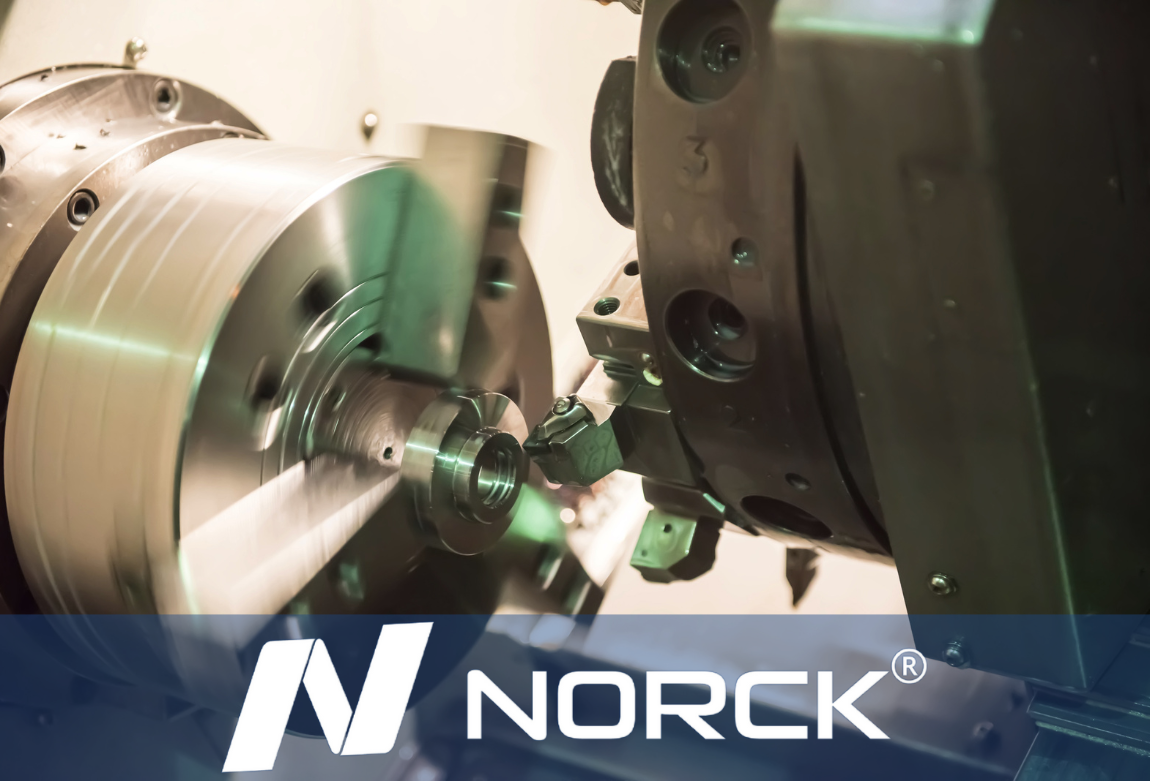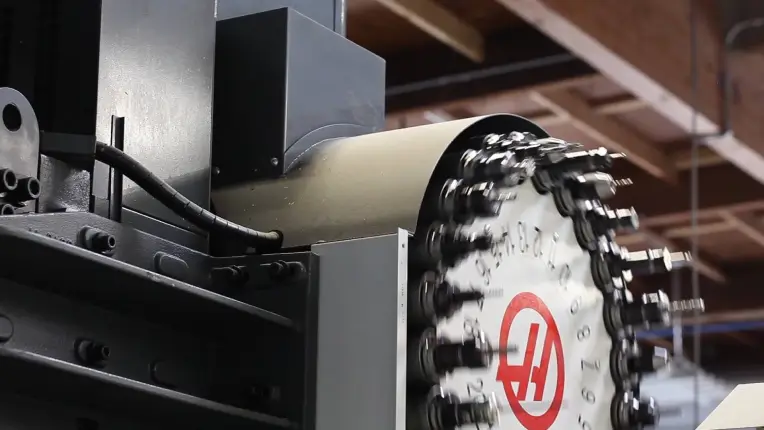Top 7 Custom Cnc Machining Services Manufacturers & Suppliers List
1. PCBWay – CNC Machining Services
Domain: pcbway.com
Registered: 2012 (13 years)
Introduction: CNC machining services for rapid prototyping, offering precision manufacturing with a variety of materials including metals and plastics. Capabilities include 3-axis and 5-axis machining, with fast turnaround times and competitive pricing. Ideal for creating complex parts and prototypes with high accuracy and surface finish.
2. Protolabs – CNC Machining Services
Domain: protolabs.com
Registered: 2006 (19 years)
Introduction: Online CNC Machining Service offering cost-efficient machined parts at any quantity. Capabilities include CNC Milling (3-axis and 5-axis indexed milling) and CNC Turning (with live tooling). Machined prototypes and production parts available in as fast as 1 day. Materials include various metals such as Aluminum, Brass, Copper, Stainless Steel, and Steel Alloy. Certifications include ISO 9001:2015,…
3. eMachineShop – Custom Manufacturing Services
Domain: emachineshop.com
Registered: 1999 (26 years)
Introduction: eMachineShop offers custom manufacturing services including CNC Machining, Sheet Metal Fabrication, Injection Molding, and 3D Printing. Key features include:
– Fast quotes and free CAD software.
– Custom sheet metal parts in as little as 3 days.
– Upload support for various CAD file formats (STEP, IGES, DXF, SLDPRT, STL, AMF, etc.).
– Rapid prototyping and full production runs.
– Free shipping in …
4. Hubs – Online CNC Machining Service
Domain: hubs.com
Registered: 1998 (27 years)
Introduction: Online CNC Machining Service: On-demand, custom manufacturing for rapid prototyping and production parts. Instant quotes and ordering available. Capabilities include CNC milling (3 & 5 axis), CNC turning, and additional services like sheet metal fabrication and injection molding. Materials include a variety of CNC metals (e.g., aluminum, stainless steel, brass) and plastics (e.g., ABS, Nylon, PEEK…
5. PartsBadger – CNC Machining Services
Domain: parts-badger.com
Registered: 2016 (9 years)
Introduction: PartsBadger offers online CNC machining services with capabilities including multi-axis machining, Swiss CNC machining, surface finishes, injection molding, 3D printing, sheet metal services, urethane casting, and investment casting. They provide quick quotes with no minimum order requirements, delivering parts in as little as 14 days. Their machining types include 3-axis milling, 4 & 5-axis milli…
6. 3DEXPERIENCE – CNC Machining Service
Domain: 3ds.com
Registered: 1995 (30 years)
Introduction: CNC Machining Service offered by 3DEXPERIENCE Make is an on-demand manufacturing platform that connects designers and engineers with industrial CNC machining service providers primarily in North America and Europe. The service caters to small and large runs, including mockups and prototypes, and utilizes a powerful algorithm for instant quotes. It serves various industries such as Aerospace, Defen…
7. RapidDirect – Custom CNC Machining Services
Domain: rapiddirect.com
Registered: 2010 (15 years)
Introduction: Online CNC Machining Services for Custom Parts, Instant CNC Quote, Capabilities include CNC Machining, CNC Milling, CNC Turning, Injection Molding, Plastic Injection Molding, Injection Mold Tooling, Sheet Metal Fabrication, 3D Printing, Vacuum Casting, Die Casting, Finishing Services, Rapid Prototyping, On-Demand Manufacturing Solutions. Industries served: Aerospace, Automotive, Consumer Products,…
Introduction: Navigating the Global Market for custom cnc machining services
Navigating the complexities of sourcing custom CNC machining services can pose significant challenges for international B2B buyers, especially when aiming for precision and reliability in manufacturing. As industries across Africa, South America, the Middle East, and Europe grapple with diverse production needs, understanding the nuances of CNC machining becomes crucial for informed decision-making. This guide offers a comprehensive overview of custom CNC machining services, detailing various types such as milling, turning, and routing, along with their applications across sectors like aerospace, medical, and automotive.
Moreover, we delve into the essential aspects of supplier vetting, ensuring that buyers can identify certified and reputable manufacturers who meet international standards. With insights into cost structures, including factors like tariffs and shipping considerations, this guide empowers buyers to navigate the financial implications of their sourcing decisions effectively. By providing actionable insights and expert knowledge, we aim to equip international B2B buyers with the tools necessary to make strategic choices that align with their unique requirements, ultimately leading to enhanced production efficiency and product quality. Whether you’re based in Brazil, Saudi Arabia, or anywhere in between, this resource is designed to streamline your procurement process in the competitive landscape of custom CNC machining.
Understanding custom cnc machining services Types and Variations
| Type Name | Key Distinguishing Features | Primary B2B Applications | Brief Pros & Cons for Buyers |
|---|---|---|---|
| CNC Milling | Utilizes rotating multi-point cutting tools; available in 3, 4, and 5-axis configurations | Aerospace, automotive, and medical device manufacturing | Pros: High precision, complex geometries; Cons: Longer lead times for complex parts. |
| CNC Turning | Employs a single-point cutting tool; ideal for cylindrical parts | Oil and gas, automotive, and consumer products | Pros: Efficient for round parts, smooth finishes; Cons: Limited to rotational shapes. |
| CNC Routing | Uses a flat cutting tool; suitable for large sheets of material | Signage, furniture, and custom cabinetry | Pros: Cost-effective for large parts; Cons: Less precision compared to milling. |
| CNC Laser Cutting | Employs high-powered lasers for precise cuts; excellent for thin materials | Electronics, automotive, and aerospace industries | Pros: Clean edges, high-speed processing; Cons: Limited to thinner materials. |
| CNC Waterjet Cutting | Utilizes high-pressure water mixed with abrasives; versatile for various materials | Aerospace, architecture, and metal fabrication | Pros: Cuts thick materials without heat distortion; Cons: Slower than other methods. |
What Are the Characteristics and Suitability of CNC Milling Services?
CNC milling is a versatile machining process that utilizes rotating multi-point cutting tools to shape materials. With configurations ranging from 3 to 5 axes, this method is highly suitable for producing complex geometries and intricate designs. B2B buyers in sectors such as aerospace and automotive often prefer CNC milling for its high precision and capability to handle diverse materials. However, the complexity of some parts may result in longer lead times, which is an important consideration for just-in-time manufacturing.
How Does CNC Turning Differ in Applications?
CNC turning is characterized by its use of a single-point cutting tool that shapes cylindrical parts as they rotate. This method is particularly effective for producing components like shafts and fittings, making it a staple in industries such as oil and gas, automotive, and consumer products. Buyers often appreciate CNC turning for its efficiency and the smooth finishes it provides. Nevertheless, its limitation to rotational shapes may deter those needing more complex geometrical designs.
What Advantages Do CNC Routing Services Offer?
CNC routing employs flat cutting tools to carve out shapes from large sheets of material, making it a cost-effective solution for producing large parts. Industries such as signage, furniture, and custom cabinetry frequently utilize CNC routing for its ability to handle a variety of materials. While it offers substantial savings for bulk production, the precision may not match that of milling, which is a crucial factor for buyers requiring tight tolerances.
Why Consider CNC Laser Cutting for Precision Needs?
CNC laser cutting utilizes high-powered lasers to achieve precise cuts in materials, making it particularly effective for thin materials. This method is widely used in electronics, automotive, and aerospace sectors due to its ability to deliver clean edges and rapid processing speeds. However, buyers should be aware that the material thickness limitations can restrict its application, particularly in industries requiring thicker components.
What Are the Benefits of CNC Waterjet Cutting for Various Materials?
CNC waterjet cutting employs a high-pressure water stream mixed with abrasives to cut through materials, making it a versatile choice for thick materials across multiple industries, including aerospace and architecture. Its ability to cut without heat distortion is a significant advantage, ensuring the integrity of sensitive materials. However, buyers should consider that waterjet cutting may be slower compared to other machining methods, which can impact production timelines.
Key Industrial Applications of custom cnc machining services
| Industry/Sector | Specific Application of custom cnc machining services | Value/Benefit for the Business | Key Sourcing Considerations for this Application |
|---|---|---|---|
| Aerospace | Production of complex aircraft components | High precision and reliability in safety-critical parts | Certifications (ISO, AS9100), material traceability |
| Medical Devices | Manufacturing of surgical instruments and implants | Enhanced patient safety and compliance with regulations | Biocompatibility, FDA approvals, tight tolerances |
| Automotive | Creation of custom engine parts and assemblies | Improved performance and efficiency of vehicles | Material specifications, lead times, cost efficiency |
| Robotics | Development of robotic arms and automation components | Increased operational efficiency and precision | Custom design capabilities, rapid prototyping options |
| Electronics | Fabrication of housings and components for devices | High-quality finishes and precision for better performance | Material selection, surface finish requirements |
How Are Custom CNC Machining Services Utilized in Aerospace?
In the aerospace industry, custom CNC machining services are essential for producing intricate components such as turbine blades, brackets, and fuselage parts. These components must meet stringent safety and performance standards, necessitating high precision and reliability. International buyers, especially from regions like Europe and the Middle East, need to prioritize sourcing from ISO-certified suppliers that can provide material traceability and adhere to industry regulations to ensure compliance with aerospace standards.
What Role Does CNC Machining Play in Medical Device Manufacturing?
Custom CNC machining is pivotal in the medical sector for creating surgical instruments, implants, and prosthetics. These products require stringent quality control and biocompatibility, as they directly impact patient safety. Buyers from Africa and South America should seek suppliers with FDA approvals and a strong track record in manufacturing medical-grade components, ensuring that the products meet both local and international health standards.
How Is CNC Machining Applied in the Automotive Sector?
In the automotive industry, custom CNC machining is utilized for fabricating engine parts, transmission components, and custom assemblies. The ability to produce high-performance parts with tight tolerances enhances vehicle efficiency and reliability. B2B buyers from regions like Brazil and Saudi Arabia should consider suppliers that offer rapid prototyping and flexible production capabilities, enabling them to respond quickly to market demands while maintaining cost-effectiveness.
In What Ways Does CNC Machining Benefit Robotics Development?
CNC machining services are crucial in the robotics sector for manufacturing robotic arms and automation components that require high precision and durability. These parts are integral to enhancing operational efficiency and accuracy in automated processes. International buyers should look for suppliers that provide custom design capabilities and quick turnaround times, ensuring that they can develop innovative solutions that keep pace with technological advancements.
How Does CNC Machining Enhance Electronics Manufacturing?
Custom CNC machining is widely used in the electronics industry for the fabrication of housings, connectors, and other components that require high-quality finishes and precise dimensions. The performance of electronic devices often hinges on the quality of these parts. Buyers, particularly from Europe and the Middle East, must focus on sourcing from suppliers that offer diverse material options and can meet specific surface finish requirements, ensuring optimal functionality and aesthetic appeal of their products.
3 Common User Pain Points for ‘custom cnc machining services’ & Their Solutions
Scenario 1: Inconsistent Quality and Tolerances in Custom Parts
The Problem: B2B buyers often face the frustration of receiving custom CNC machined parts that do not meet their quality expectations or specified tolerances. This inconsistency can lead to significant production delays, increased costs due to rework, and ultimately, a negative impact on the final product’s reliability. Buyers may struggle to find suppliers who can consistently deliver high-quality parts, especially when working with complex designs or specialized materials.
The Solution: To mitigate this issue, B2B buyers should prioritize working with certified CNC machining service providers who adhere to recognized quality management standards, such as ISO 9001:2015 or AS9100D. When sourcing a supplier, buyers should request detailed documentation of their quality control processes, including inspection reports and material certifications. Additionally, buyers should clearly communicate their tolerance requirements and provide comprehensive CAD drawings that reflect the intended specifications. Engaging in a collaborative design review with the supplier can also help identify potential manufacturing challenges early in the process. By establishing a transparent dialogue regarding quality expectations, buyers can significantly reduce the risk of receiving subpar parts.
Scenario 2: Long Lead Times Delaying Project Timelines
The Problem: Many businesses face critical project timelines that can be disrupted by long lead times associated with CNC machining services. This issue is particularly acute for companies needing rapid prototyping or small batch production, where waiting weeks for parts can stall development cycles and jeopardize market competitiveness. Buyers often feel pressured to meet tight deadlines, which can lead to hasty decisions in choosing suppliers.
The Solution: To combat long lead times, B2B buyers should explore suppliers that offer instant quoting and rapid prototyping services. Leveraging platforms that provide an online instant quoting engine can help buyers quickly assess pricing and lead times for their specific projects. Additionally, buyers should consider suppliers with a robust network of vetted machine shops, ensuring access to multiple production capabilities and quicker turnaround options. Building a long-term relationship with a reliable supplier can also facilitate faster service, as they become more familiar with a buyer’s needs and preferences. Lastly, buyers should account for lead times in their project planning and maintain open communication with suppliers to anticipate any potential delays.
Scenario 3: Difficulty in Managing Costs and Budgeting for CNC Machining
The Problem: Managing costs in custom CNC machining can be a significant challenge for B2B buyers. Fluctuating material prices, unexpected tooling costs, and additional fees for revisions can all contribute to budget overruns. Buyers often find it difficult to estimate total project costs accurately, leading to financial strain and project delays.
The Solution: To gain better control over costs, buyers should seek suppliers who provide comprehensive quotes that include all potential fees, such as material costs, tooling, and shipping. Utilizing platforms that allow for the submission of CAD files for instant quotes can give buyers a clearer picture of the financial implications of their designs. Additionally, buyers should consider discussing budget constraints upfront with their chosen suppliers to explore options for cost-effective materials or production methods without compromising quality. Establishing a clear budget and timeline at the beginning of the project will enable suppliers to offer tailored solutions that align with financial goals. By being proactive about cost management, buyers can make more informed decisions and avoid surprises later in the production process.
Strategic Material Selection Guide for custom cnc machining services
When selecting materials for custom CNC machining services, it’s essential for B2B buyers to consider various factors that affect product performance, cost, and suitability for specific applications. Below is an analysis of four commonly used materials in CNC machining, focusing on their properties, advantages, limitations, and considerations for international buyers.
What Are the Key Properties of Aluminum in CNC Machining?
Aluminum is one of the most widely used materials in CNC machining due to its excellent properties. It has a high strength-to-weight ratio, good corrosion resistance, and can withstand temperatures up to 400°F (204°C). Its thermal conductivity makes it suitable for applications requiring heat dissipation, such as automotive and aerospace components.
Pros and Cons:
Aluminum is lightweight and relatively inexpensive, making it a popular choice for a variety of applications. However, its softness can lead to wear and tear in high-stress environments, and it may require additional treatments for enhanced surface hardness.
Impact on Application:
Aluminum is compatible with various media, including water and oils, making it suitable for automotive and industrial applications.
Considerations for International Buyers:
Buyers from regions like Africa and South America should be aware of the different grades of aluminum and relevant standards (such as ASTM B221 for extruded aluminum). Import tariffs and local availability can also affect costs.
How Does Stainless Steel Perform in Custom CNC Machining?
Stainless steel is known for its exceptional corrosion resistance and durability, making it ideal for applications in the medical, food processing, and aerospace industries. It can withstand temperatures exceeding 1,500°F (815°C) and is available in various grades, each with unique properties.
Pros and Cons:
While stainless steel is incredibly durable and resistant to oxidation, it is more expensive than aluminum and can be challenging to machine due to its hardness. This can lead to increased tooling costs and longer machining times.
Impact on Application:
Stainless steel is ideal for applications requiring sanitation and resistance to harsh environments, such as medical devices and kitchen equipment.
Considerations for International Buyers:
Compliance with international standards like ASTM A240 is crucial for buyers in the Middle East and Europe. Understanding the local regulations regarding food safety and medical device manufacturing is also essential.
What Are the Advantages of Using Engineering Plastics in CNC Machining?
Engineering plastics, such as PEEK and Nylon, offer excellent chemical resistance, low friction, and lightweight properties. They can operate effectively in temperatures ranging from -40°F to 300°F (-40°C to 149°C), depending on the specific type of plastic.
Pros and Cons:
These materials are generally less expensive than metals and can be machined to tight tolerances. However, they may not be suitable for high-load applications, and their thermal stability can be a concern in extreme conditions.
Impact on Application:
Engineering plastics are often used in electrical insulation, automotive components, and consumer goods, where weight reduction is critical.
Considerations for International Buyers:
B2B buyers should ensure that the selected plastics comply with regional standards like JIS K 7200 in Japan or DIN 53430 in Germany. Import regulations and material certifications can also impact the procurement process.
How Does Titanium Compare in CNC Machining Applications?
Titanium is known for its high strength, low weight, and excellent corrosion resistance, making it suitable for aerospace and medical applications. It can withstand temperatures up to 1,600°F (871°C) and is biocompatible, which is essential for medical implants.
Pros and Cons:
While titanium offers superior performance, it is one of the most expensive materials to machine. Its hardness can lead to increased wear on tooling and longer machining times, which can drive up costs.
Impact on Application:
Titanium is ideal for applications requiring high strength and low weight, such as aircraft components and surgical instruments.
Considerations for International Buyers:
Buyers should be aware of the stringent quality standards for titanium components, especially in aerospace and medical applications, such as AS9100 for aerospace quality management. Understanding the local market dynamics and sourcing options is also critical.
Summary Table
| Material | Typical Use Case for custom cnc machining services | Key Advantage | Key Disadvantage/Limitation | Relative Cost (Low/Med/High) |
|---|---|---|---|---|
| Aluminum | Automotive, aerospace components | Lightweight, good corrosion resistance | Soft, may require surface treatments | Medium |
| Stainless Steel | Medical devices, food processing equipment | Excellent durability and corrosion resistance | Expensive, challenging to machine | High |
| Engineering Plastics | Electrical insulation, automotive parts | Cost-effective, lightweight | Not suitable for high-load applications | Low |
| Titanium | Aerospace components, medical implants | High strength-to-weight ratio | Very expensive, difficult to machine | High |
This material selection guide provides a comprehensive overview for international B2B buyers, helping them make informed decisions based on their specific needs and regional considerations.
In-depth Look: Manufacturing Processes and Quality Assurance for custom cnc machining services
What Are the Main Stages in the Manufacturing Process of Custom CNC Machining Services?
The manufacturing process for custom CNC machining services involves several critical stages, each designed to ensure precision and quality. These stages include material preparation, forming, assembly, and finishing.
-
Material Preparation: This initial stage involves selecting the right materials based on the specifications of the project. Common materials include various metals (aluminum, brass, titanium) and plastics (acetal, PEEK). The materials are then cut to size, ensuring they meet the required dimensions before machining begins. It’s essential for buyers to verify that suppliers use high-quality raw materials, as this significantly impacts the final product’s integrity.
-
Forming: In this stage, CNC machines—such as milling machines, lathes, and routers—are programmed to create the desired shapes and features based on CAD models. Advanced CNC technology allows for 3-axis, 4-axis, and even 5-axis machining, which can produce intricate designs with high precision. B2B buyers should inquire about the types of CNC machinery used by suppliers and whether they can accommodate complex geometries.
-
Assembly: For projects requiring multiple components, assembly is a crucial stage. This may involve joining machined parts using fasteners, welding, or adhesives, depending on the application. It’s vital for suppliers to have a robust assembly process to ensure that all components fit together seamlessly, especially in industries like aerospace and medical where tolerances are critical.
-
Finishing: The finishing stage enhances the aesthetic and functional qualities of the machined parts. Techniques such as anodizing, plating, and surface treatment can be applied to improve corrosion resistance or achieve a specific surface finish. B2B buyers should clarify the finishing options available and how they align with their project requirements.
What Quality Assurance Standards Should B2B Buyers Consider for CNC Machining Services?
Quality assurance (QA) is paramount in the CNC machining process, ensuring that the final products meet both industry standards and customer specifications. Several international and industry-specific standards govern quality assurance in this field.
-
International Standards: The ISO 9001 standard is widely recognized and focuses on quality management systems, ensuring that suppliers maintain consistent quality throughout their processes. Other relevant certifications include ISO 13485 for medical devices and AS9100 for aerospace applications. Buyers should request documentation proving compliance with these standards to mitigate risks in their supply chain.
-
Industry-Specific Standards: Depending on the industry, additional certifications may be required. For instance, the American Petroleum Institute (API) sets standards for oil and gas equipment, while CE marking is essential for products sold in the European market. Understanding these specific requirements can help buyers make informed decisions.
What Are the Key Quality Control Checkpoints in CNC Machining?
Quality control (QC) is integrated into the CNC machining process at several checkpoints to ensure that parts meet the required specifications. These checkpoints typically include Incoming Quality Control (IQC), In-Process Quality Control (IPQC), and Final Quality Control (FQC).
-
Incoming Quality Control (IQC): This initial inspection verifies the quality of raw materials before they enter the production process. Suppliers should have procedures in place to assess materials for compliance with specified standards and ensure that all incoming materials are traceable.
-
In-Process Quality Control (IPQC): During machining, regular checks are conducted to monitor the production process. This includes measuring critical dimensions and tolerances using tools such as calipers and coordinate measuring machines (CMM). Suppliers should document these inspections to provide transparency to buyers.
-
Final Quality Control (FQC): After machining, a thorough inspection of the finished parts is performed. This involves checking the overall dimensions, surface finish, and functionality of the parts. Buyers should request detailed reports from suppliers outlining the FQC processes and results.
How Can B2B Buyers Verify the Quality Control Processes of CNC Machining Suppliers?
To ensure the quality of CNC machined parts, B2B buyers should actively verify the quality control processes of their suppliers through various methods.
-
Supplier Audits: Conducting on-site audits allows buyers to evaluate the supplier’s quality management system and production capabilities firsthand. This can include reviewing documentation, observing processes, and assessing the overall work environment.
-
Quality Control Reports: Requesting regular QC reports helps buyers stay informed about the quality of the parts being produced. These reports should detail inspection results, any deviations from specifications, and corrective actions taken by the supplier.
-
Third-Party Inspections: Engaging third-party inspection agencies can provide an unbiased assessment of the quality of the machined parts. This is particularly beneficial for international buyers who may not have the means to conduct on-site inspections.
What Nuances Should International B2B Buyers Be Aware of Regarding Quality Control in CNC Machining?
International B2B buyers, especially from regions like Africa, South America, the Middle East, and Europe, should be aware of specific nuances that can affect quality control in CNC machining.
-
Regulatory Compliance: Different countries have varying regulatory requirements. Buyers must ensure that their suppliers comply with local regulations concerning quality and safety standards. This is especially crucial when dealing with industries like medical devices or aerospace.
-
Cultural Considerations: Communication styles and business practices can vary significantly across cultures. Establishing clear expectations and maintaining open lines of communication can help mitigate misunderstandings regarding quality requirements.
-
Logistical Challenges: International shipping can introduce risks that may affect product quality. Buyers should consider the impact of transportation on the integrity of machined parts and ensure that suppliers use appropriate packaging and handling methods.
-
Currency and Tariffs: Understanding the financial implications of tariffs and currency fluctuations is vital for maintaining budget compliance. Buyers should work with suppliers who can provide transparent pricing that includes all potential costs.
By taking these factors into account, B2B buyers can navigate the complexities of sourcing custom CNC machining services while ensuring that they receive high-quality products that meet their specific needs.
Practical Sourcing Guide: A Step-by-Step Checklist for ‘custom cnc machining services’
To successfully procure custom CNC machining services, it’s essential to follow a structured approach. This guide provides a step-by-step checklist designed to help international B2B buyers navigate the complexities of sourcing CNC machining services effectively.
Step 1: Define Your Technical Specifications
Start by clearly outlining your project requirements, including dimensions, tolerances, materials, and finishes. This ensures that potential suppliers understand your needs and can provide accurate quotes. Be specific about the intended application, as this can influence the choice of materials and machining processes.
Step 2: Research Potential Suppliers
Conduct thorough research to identify suppliers with expertise in CNC machining services. Look for companies that specialize in your required materials and have experience in your industry. Pay attention to their production capabilities, technology, and any specialized services they offer, such as rapid prototyping or high-volume production.
Step 3: Evaluate Supplier Certifications
Before finalizing any agreements, verify the certifications of potential suppliers. Look for ISO certifications relevant to quality management (ISO 9001) and industry-specific standards (like AS9100 for aerospace). These certifications indicate a commitment to quality and compliance, which is crucial for maintaining high standards in manufacturing.
Step 4: Request Quotes and Compare Pricing
Once you have shortlisted potential suppliers, request detailed quotes that break down costs, lead times, and any additional fees (such as shipping or tariffs). Comparing these quotes will help you assess which supplier offers the best value for your project. Consider not only the price but also the quality of service and support provided.
Step 5: Review Production Capabilities and Technologies
Investigate the machining technologies and equipment used by the suppliers. This includes checking whether they have advanced capabilities such as multi-axis machining or CNC lathes that can meet complex specifications. Understanding their production capacity and technology ensures they can handle your project requirements efficiently.
Step 6: Check References and Past Work
Request references from previous clients or case studies that demonstrate the supplier’s ability to deliver quality results. This step is essential to gauge their reliability, quality of work, and customer service. If possible, connect with buyers in similar industries to gain insights into their experiences.
Step 7: Establish Clear Communication Channels
Effective communication is vital throughout the sourcing process. Ensure that you have established clear channels for discussing project details, timelines, and any potential issues. A supplier’s willingness to engage and provide updates can be a strong indicator of their professionalism and commitment to customer satisfaction.
By following this checklist, B2B buyers can make informed decisions when sourcing custom CNC machining services, ensuring that they partner with reliable suppliers capable of delivering high-quality products that meet their specifications.
Comprehensive Cost and Pricing Analysis for custom cnc machining services Sourcing
What Are the Key Cost Components in Custom CNC Machining Services?
When sourcing custom CNC machining services, understanding the cost structure is essential for B2B buyers. The primary cost components include:
-
Materials: The type of material significantly impacts cost. Common materials like aluminum and plastic are generally less expensive than specialized alloys such as titanium. Additionally, the cost fluctuates based on market prices, availability, and regional sourcing challenges.
-
Labor: Skilled labor is required for programming CNC machines and overseeing production. Labor costs can vary widely depending on the region, with higher costs typically in developed markets compared to emerging economies.
-
Manufacturing Overhead: This encompasses utilities, facility maintenance, and administrative expenses. Overhead costs are essential for calculating the total cost of production and can differ based on the supplier’s operational efficiency.
-
Tooling: Tooling costs can be substantial, especially for custom designs requiring specialized tools or fixtures. Suppliers often pass these costs onto buyers, making it crucial to factor this into the total budget.
-
Quality Control (QC): Ensuring that parts meet specified tolerances and quality standards often involves additional QC processes and inspections, which can increase overall costs. Certifications such as ISO 9001 can also add to the expense but may be necessary for certain industries.
-
Logistics: Shipping costs, including tariffs and customs duties, are vital to consider, especially for international orders. These costs can vary based on the destination and shipping methods used.
-
Margin: Suppliers typically include a profit margin in their pricing, which can vary based on market conditions and competition.
How Do Price Influencers Impact Custom CNC Machining Costs?
Several factors influence the pricing of CNC machining services:
-
Volume/MOQ (Minimum Order Quantity): Higher volumes often lead to reduced per-unit costs due to economies of scale. However, suppliers may have minimum order quantities that could affect pricing for smaller projects.
-
Specifications and Customization: More complex designs requiring advanced machining capabilities will generally incur higher costs. Clear specifications help avoid misunderstandings that could lead to costly rework.
-
Materials: As previously mentioned, the choice of materials directly influences pricing. Buyers should consider the long-term implications of material selection on performance and durability.
-
Quality and Certifications: Parts requiring strict adherence to quality standards or specific certifications will typically have higher costs associated with compliance. Buyers should evaluate the necessity of these certifications based on their industry requirements.
-
Supplier Factors: The supplier’s location, reputation, and capabilities can also affect pricing. Suppliers with extensive experience and advanced technology may charge a premium for their services.
-
Incoterms: Understanding Incoterms is critical for international transactions, as they define the responsibilities of buyers and sellers regarding shipping, insurance, and tariffs. This knowledge can prevent unexpected costs during the procurement process.
What Are Effective Buyer Tips for Negotiating CNC Machining Prices?
To maximize cost-efficiency when sourcing custom CNC machining services, consider the following strategies:
-
Negotiate Terms: Don’t hesitate to negotiate prices and payment terms. Suppliers may offer discounts for larger orders or favorable payment terms if approached correctly.
-
Evaluate Total Cost of Ownership (TCO): Consider not just the initial price but also the long-term costs associated with quality, durability, and maintenance of the machined parts. A lower upfront cost may lead to higher TCO if the parts require frequent replacements.
-
Understand Pricing Nuances for International Buyers: Buyers from regions like Africa, South America, and the Middle East should be aware of potential hidden costs, such as tariffs and longer shipping times. Building relationships with suppliers can also facilitate better pricing and terms.
-
Request Detailed Quotes: Ask suppliers for itemized quotes that break down costs. This transparency can help identify areas for negotiation and understanding where costs are coming from.
-
Consider Local Suppliers: Whenever possible, sourcing from local suppliers can reduce shipping costs and lead times, providing a competitive advantage.
While pricing will vary based on specific requirements and market conditions, being informed about these components and strategies will empower B2B buyers in their sourcing endeavors for custom CNC machining services.
Alternatives Analysis: Comparing custom cnc machining services With Other Solutions
When considering manufacturing methods for precision components, it’s essential to evaluate various alternatives alongside custom CNC machining services. This analysis provides insight into alternative solutions that may meet specific production needs, helping B2B buyers make informed decisions.
| Comparison Aspect | Custom CNC Machining Services | 3D Printing | Injection Molding |
|---|---|---|---|
| Performance | High precision and repeatability; suitable for complex geometries. | Good for prototyping; limited precision for functional parts. | Excellent for high-volume production with consistent quality. |
| Cost | Moderate initial investment; cost-effective for medium to large runs. | Lower initial costs but can be expensive for large volumes. | High initial setup cost; best for large production runs to offset costs. |
| Ease of Implementation | Requires CAD files and skilled operators; setup time can vary. | User-friendly with minimal setup; design flexibility. | Complex setup requiring molds; longer lead times. |
| Maintenance | Regular maintenance needed; skilled technicians required. | Minimal maintenance; easy to operate. | Requires maintenance of molds and machinery; skilled labor needed. |
| Best Use Case | Ideal for low to medium volume production with high precision needs. | Best for prototyping and low-volume production with complex designs. | Most effective for high-volume production of standardized parts. |
What are the Advantages and Disadvantages of 3D Printing Compared to CNC Machining?
3D printing, also known as additive manufacturing, allows for rapid prototyping and the creation of complex geometries that may be difficult to achieve through traditional methods. It typically has a lower initial cost and offers design flexibility, making it suitable for unique, low-volume parts. However, the precision may not match that of CNC machining, particularly for functional components requiring tight tolerances. Additionally, while 3D printing can be cost-effective for small batches, the costs can escalate significantly for larger production runs, which may not make it the best choice for high-volume needs.
How Does Injection Molding Compare to Custom CNC Machining Services?
Injection molding is a highly efficient manufacturing process best suited for high-volume production. Once the initial mold is created, the cost per unit significantly decreases, making it a cost-effective solution for producing large quantities of identical parts. However, the initial investment in mold creation can be substantial and may lead to longer lead times. Additionally, injection molding is less versatile when it comes to design changes; modifications often require a new mold. In contrast, CNC machining can accommodate design changes more readily, making it a more flexible option for manufacturers who expect to iterate on their designs.
How Can B2B Buyers Determine the Best Manufacturing Solution for Their Needs?
Choosing the right manufacturing solution requires a thorough understanding of specific project requirements, including volume, precision, material, and lead time. For projects with complex geometries or low-volume needs, custom CNC machining or 3D printing may be preferable. Conversely, if high volume and cost efficiency are paramount, injection molding could be the most suitable option. B2B buyers should assess their long-term production goals, budget constraints, and potential for design changes when evaluating these alternatives. This strategic approach ensures that the selected solution aligns with both immediate and future manufacturing needs.
Essential Technical Properties and Trade Terminology for custom cnc machining services
What Are the Key Technical Properties in Custom CNC Machining Services?
When sourcing custom CNC machining services, understanding the technical specifications is essential for ensuring quality and compatibility with your project needs. Here are some critical properties:
1. Material Grade
Material grade refers to the type and quality of the materials used in CNC machining, such as aluminum, steel, or plastics. Different grades possess unique mechanical properties, affecting strength, weight, and corrosion resistance. For example, aircraft-grade aluminum (like 7075) is used in aerospace applications due to its high strength-to-weight ratio. B2B buyers should select material grades that align with their industry standards and performance requirements.
2. Tolerance
Tolerance defines the allowable deviation from specified dimensions in a machined part. This can range from general tolerances of +/- 0.005″ to precision tolerances as tight as +/- 0.001″. Understanding tolerances is crucial as it directly affects the part’s functionality and interchangeability. In industries like aerospace and medical, where precision is paramount, selecting a machining service that meets your tolerance requirements is non-negotiable.
3. Surface Finish
Surface finish refers to the texture of the part’s exterior after machining. Common finishes include “as-machined,” bead blasting, and anodizing. The choice of surface finish can influence not just aesthetics but also performance characteristics like friction and wear resistance. For example, a smoother finish may be necessary for components in contact with other parts. Buyers should specify surface finish requirements to ensure the parts meet their functional and aesthetic criteria.
4. Minimum Feature Size
Minimum feature size indicates the smallest detail that can be accurately machined. This can vary based on the material and the complexity of the part. For example, a minimum feature size of 0.020” (0.50 mm) is common in CNC machining. Understanding this specification helps buyers design parts that can be manufactured without compromising performance or integrity.
5. Lead Time
Lead time is the duration from order placement to delivery of the finished parts. In fast-paced industries, quick turnaround times can be crucial for maintaining project timelines. Custom CNC machining services often offer varying lead times based on complexity and volume, so it’s vital for buyers to communicate urgency when requesting quotes.
What Are Common Trade Terms in Custom CNC Machining Services?
Familiarizing yourself with industry jargon can streamline communication and enhance negotiation with suppliers. Here are some common terms:
1. OEM (Original Equipment Manufacturer)
OEM refers to a company that produces parts or equipment that may be marketed by another manufacturer. In CNC machining, an OEM may require custom parts that fit into their larger assemblies. Understanding OEM relationships helps buyers navigate supply chains effectively.
2. MOQ (Minimum Order Quantity)
MOQ is the smallest number of units that a supplier is willing to produce for a single order. Knowing the MOQ is vital for budget planning and inventory management. Buyers should consider their project scale when discussing MOQs with manufacturers to avoid excess costs.
3. RFQ (Request for Quotation)
An RFQ is a document soliciting price quotes from suppliers for specific products or services. It typically includes detailed specifications, materials, and quantities. Crafting a comprehensive RFQ ensures that suppliers provide accurate and comparable quotes, aiding in informed decision-making.
4. Incoterms (International Commercial Terms)
Incoterms are internationally recognized rules that define the responsibilities of buyers and sellers regarding the delivery of goods. Understanding these terms can help B2B buyers clarify shipping arrangements, costs, and liabilities, especially in cross-border transactions.
5. CNC (Computer Numerical Control)
CNC refers to the automated control of machining tools through computer programming. This technology allows for high precision and repeatability in manufacturing. For buyers, understanding CNC capabilities helps in selecting the right service provider that can meet specific project needs.
By grasping these technical properties and trade terminology, B2B buyers can make informed decisions when engaging with custom CNC machining service providers, ultimately enhancing project outcomes and operational efficiency.
Navigating Market Dynamics and Sourcing Trends in the custom cnc machining services Sector
What Are the Key Trends Influencing the Custom CNC Machining Services Market?
The custom CNC machining services sector is witnessing significant transformation driven by technological advancements, globalization, and shifting market demands. A primary driver is the growing emphasis on rapid prototyping and on-demand manufacturing, allowing companies to shorten product development cycles and reduce inventory costs. International B2B buyers, particularly from Africa, South America, the Middle East, and Europe, are increasingly leveraging online platforms that provide instant quotes and transparent pricing, facilitating more efficient sourcing processes.
Emerging technologies such as artificial intelligence and machine learning are enhancing predictive maintenance and optimizing machining processes, leading to improved operational efficiencies. This trend is particularly relevant for buyers in regions like Brazil and Saudi Arabia, where industries such as aerospace and automotive are rapidly evolving. Additionally, the rise of Industry 4.0 is promoting smart factories, integrating IoT devices to enable real-time monitoring and data analytics for better decision-making.
Furthermore, sustainability is becoming a core consideration, with buyers prioritizing suppliers that offer environmentally friendly materials and processes. As global supply chains become increasingly interconnected, buyers are also focusing on sourcing from certified vendors who adhere to international standards, ensuring compliance and quality assurance across borders.
How Can Sustainability and Ethical Sourcing Enhance Custom CNC Machining Services?
Sustainability and ethical sourcing are paramount in the custom CNC machining services market, as environmental impacts and corporate social responsibility gain prominence. The manufacturing process, particularly in CNC machining, can generate substantial waste and emissions. Therefore, international buyers are seeking suppliers who implement sustainable practices, such as reducing energy consumption and minimizing waste through lean manufacturing principles.
The importance of ethical supply chains is underscored by the increasing consumer demand for transparency. Buyers are encouraged to partner with suppliers who possess green certifications, such as ISO 14001, which focuses on effective environmental management systems. Furthermore, sourcing materials that are recycled or sustainably produced can enhance a company’s brand reputation and appeal to environmentally conscious customers.
Investing in “green” materials, such as bio-based plastics and certified metals, can also lead to long-term cost savings and open up new market opportunities. As regions like the Middle East and Africa develop their manufacturing capabilities, the integration of sustainable practices can position these markets as leaders in responsible manufacturing on a global scale.
What Is the Historical Context of Custom CNC Machining Services?
The evolution of custom CNC machining services can be traced back to the 1950s when numerical control (NC) technology was first introduced to automate machine tools. This innovation marked a significant departure from manual machining, allowing for greater precision and repeatability. By the 1970s, the introduction of computer numerical control (CNC) further enhanced these capabilities, enabling complex geometries and high-volume production.
As technology advanced, CNC machining became more accessible and versatile, integrating with CAD/CAM software to streamline design and manufacturing processes. This evolution has led to the proliferation of online CNC machining services, allowing international buyers to easily access a vast network of suppliers, facilitating faster turnaround times and improved customization options.
Today, CNC machining plays a crucial role across various industries, including aerospace, automotive, and medical, reflecting its importance in the global manufacturing landscape. The ongoing technological advancements and increasing demand for personalized solutions continue to shape the future of this sector, making it essential for B2B buyers to stay informed about market dynamics and sourcing trends.
Frequently Asked Questions (FAQs) for B2B Buyers of custom cnc machining services
-
How do I choose the right custom CNC machining service for my project?
Choosing the right custom CNC machining service involves assessing various factors. Start by evaluating the service provider’s capabilities, such as the types of materials they work with and their machining technologies (e.g., 3-axis, 5-axis). Check for certifications like ISO 9001 or AS9100, which indicate quality management standards. It’s also vital to consider their experience in your industry, turnaround times, and customer reviews. Request samples or prototypes to gauge their work quality, and ensure they can accommodate your project’s specific requirements, including tolerances and finishes. -
What are the typical lead times for custom CNC machining services?
Lead times for custom CNC machining can vary significantly based on the complexity of the part and the service provider’s workload. Typically, standard lead times range from 3 to 10 business days for prototypes, while larger production runs may take longer. When sourcing internationally, factor in additional time for shipping and customs clearance. Always confirm lead times upfront and inquire about expedited options if urgent delivery is required. Clear communication about your deadlines will help ensure that your project stays on track. -
What materials can be used in custom CNC machining?
Custom CNC machining supports a wide range of materials, including metals like aluminum, brass, and stainless steel, as well as various plastics such as acetal, nylon, and PEEK. The choice of material should align with your project’s requirements, including strength, weight, and thermal properties. Be sure to discuss material options with your supplier, as some may specialize in specific types. Additionally, inquire about material certifications and traceability, particularly for industries with stringent quality standards, such as aerospace and medical. -
What are the minimum order quantities (MOQs) for custom CNC machining?
Minimum order quantities for custom CNC machining can vary based on the supplier and the complexity of the parts. Some providers offer low-volume runs, making them suitable for prototypes or small batch production, while others may require higher MOQs for cost-effectiveness. When sourcing internationally, it’s important to clarify MOQs upfront to avoid unexpected costs. If your needs fluctuate, discuss flexible ordering options with the supplier to accommodate changing demands without compromising on quality. -
How can I ensure quality assurance in CNC machined parts?
To ensure quality assurance in CNC machined parts, choose a supplier with established quality management systems and relevant certifications like ISO 9001 or AS9100. Request detailed inspection reports, material certifications, and Certificates of Conformance (CoCs) for your parts. Engaging in a dialogue with the supplier about their quality control processes—such as in-process inspections and post-production testing—will further enhance trust. Consider incorporating third-party inspections for critical components, especially for high-stakes applications in aerospace or medical sectors. -
What are the payment terms typically offered by CNC machining service providers?
Payment terms for CNC machining services can vary widely depending on the supplier and the project’s scope. Common arrangements include upfront deposits, full payment before delivery, or payment upon receipt of goods. International buyers should clarify payment methods, as options may include bank transfers, credit cards, or escrow services. It’s advisable to negotiate terms that offer protection against non-delivery and to ensure transparency in pricing, including any additional costs like tariffs or shipping. -
How do I handle international shipping and logistics for CNC machined parts?
When sourcing CNC machined parts internationally, understanding shipping and logistics is crucial. Coordinate with your supplier to determine shipping options, timelines, and costs, including customs duties and tariffs. Using a freight forwarder can simplify the process, ensuring compliance with import/export regulations. Always verify the shipping terms (Incoterms) to clarify responsibilities for shipping costs and insurance. Lastly, consider the supplier’s ability to handle international logistics efficiently, as this can significantly impact your project’s timeline. -
What customization options are available in CNC machining services?
CNC machining services offer extensive customization options, including part size, shape, tolerances, and finishes. Suppliers can accommodate specific design requirements, such as complex geometries or custom thread sizes. Discuss your design specifications in detail, including any unique features you may need. Many providers allow you to upload CAD files for instant quoting, which can facilitate the customization process. It’s also beneficial to consult with the supplier’s engineering team to optimize designs for manufacturability and cost efficiency.
Important Disclaimer & Terms of Use
⚠️ Important Disclaimer
The information provided in this guide, including content regarding manufacturers, technical specifications, and market analysis, is for informational and educational purposes only. It does not constitute professional procurement advice, financial advice, or legal advice.
While we have made every effort to ensure the accuracy and timeliness of the information, we are not responsible for any errors, omissions, or outdated information. Market conditions, company details, and technical standards are subject to change.
B2B buyers must conduct their own independent and thorough due diligence before making any purchasing decisions. This includes contacting suppliers directly, verifying certifications, requesting samples, and seeking professional consultation. The risk of relying on any information in this guide is borne solely by the reader.
Strategic Sourcing Conclusion and Outlook for custom cnc machining services
How Can Strategic Sourcing Enhance Your Custom CNC Machining Experience?
In the dynamic landscape of custom CNC machining services, strategic sourcing emerges as a critical factor for international B2B buyers. By leveraging a robust network of qualified suppliers, companies can access diverse capabilities, materials, and technologies that meet specific production needs, from rapid prototyping to high-volume manufacturing. Ensuring that suppliers uphold certifications such as ISO 9001 and AS9100D guarantees quality and compliance, vital for industries like aerospace and medical.
Investing in strategic sourcing not only streamlines procurement processes but also fosters innovation and cost-effectiveness. Buyers from regions such as Africa, South America, the Middle East, and Europe can capitalize on these advantages by collaborating with suppliers that offer transparent pricing, quick turnarounds, and comprehensive support services.
As you consider your next CNC machining project, embrace the opportunities that strategic sourcing presents. By aligning with the right partners, you can enhance your operational efficiency and product quality. Take the next step in your sourcing strategy today—explore potential suppliers and unlock the full potential of custom CNC machining services for your business growth.
